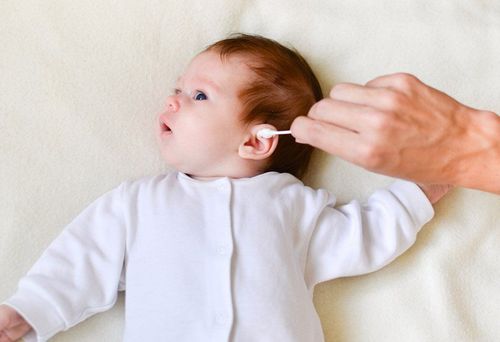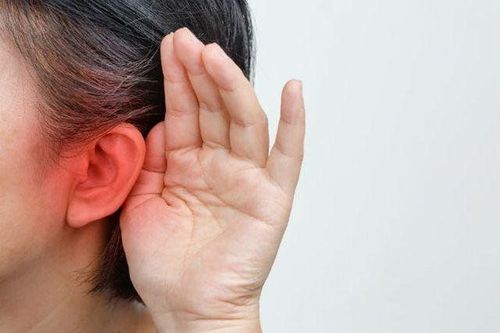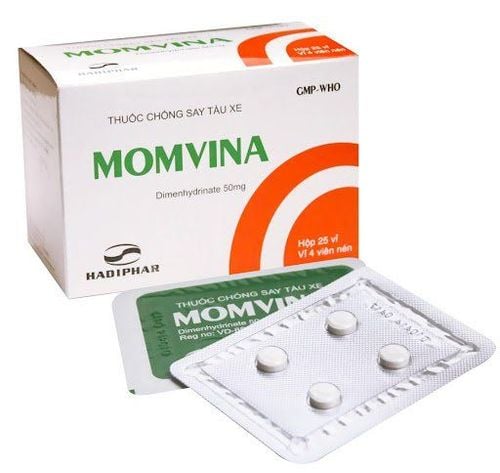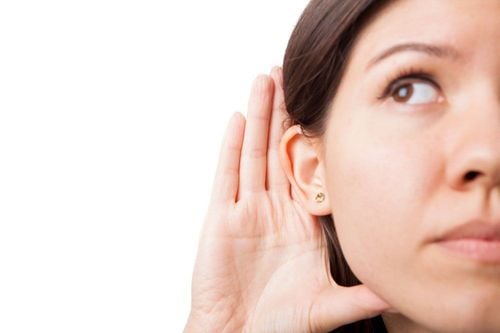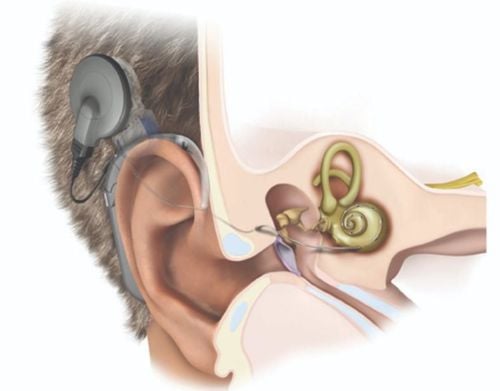This is an automatically translated article.
The article is professionally consulted by Master, Doctor Huynh An Thien - Department of Medical Examination & Internal Medicine - Vinmec Danang International General Hospital.
Meniere's disease represents a disorder in the inner ear and causes a feeling of fullness in the ear, dizziness, and hearing loss in patients. If detected early and have a timely treatment plan, the treatment will be more effective.
1. What is Meniere's disease?
Meniere is named after a French doctor, Prospere Meniere, who was the first to describe the syndrome manifesting as episodes of tinnitus, acute vertigo or deafness originating in the inner ear.Meniere's disease is caused by an abnormal increase in endothelial fluid and ions in the inner ear, the classic pathological lesion of Meniere's disease is endolymphatic stasis, and is confirmed by analysis of bone pathological tissue analysis. temples in post-mortem patients. When infected with Meniere's disease, the patient will have very typical symptoms and the etiology is unknown. For cases of damage to the inner ear and also have similar symptoms called Meniere's syndrome.
Anyone is at risk for Meniere's disease, however, people between the ages of 40 and 50 are most susceptible. Although assessed as a chronic disease, there are many treatments available to treat Meniere's disease and help reduce the impact of symptoms on patients.

2. Symptoms of Meniere's disease
Although it is a chronic disease, Meniere's disease has symptoms that appear on the patient's body in episodes with 4 main typical signs, specifically:Dizziness: The patient will feel like he is spinning. round, whether lying down, sitting or standing, then everything around is turned upside down. The vertigo episodes caused by Meniere's disease are often unannounced, often lasting from 30 to 2 hours and even longer. Patients with severe dizziness may also experience nausea and vomiting. Hearing loss (deaf): People with Meniere's disease will now have complete hearing loss and no longer be able to hear sounds, hearing loss can fluctuate over time and is common in the early stages. of the disease, as the disease progresses, it is likely that the patient will have permanent hearing loss. Always hear ringing in the ears (tinnitus): In many cases, the patient will always have the sensation of hearing vibrations, rumbling, buzzing, whistling or hissing sounds in the ears. Feeling of full or tight ear: A feeling that the ear is always tight and closed. In Meniere's disease, the typical exacerbation usually begins with a feeling of tinnitus or fullness in the ears and leads to hearing loss, accompanied by episodes of dizziness and nausea that last for hours like a sense of confusion. vestibule . Depending on the location and condition of the disease in each person, the severity, frequency and duration of exacerbations will vary.
3. Is Meniere's disease dangerous?
The symptoms of Meniere's disease are often quite similar to some other diseases that the human body can have, so when the above symptoms appear, the patient needs to go to the hospital for examination as soon as possible.In particular, when there are episodes of dizziness accompanied by the following signs, the patient must see a doctor immediately:
Language disorders Numbness or tingling Chest pain Weakness of arms or legs Unusual, severe headache Weight Loss of consciousness Difficulty walking or falling Double vision or vision loss Numbness or tingling Chest pain. Although not directly endangering the life of the patient, the unpredictable dizziness of Meniere's disease can potentially cause many unexpected dangers to the patient, increasing the risk of falls. , accident, depression, permanent hearing loss. Therefore, the disease needs to be detected early and treated promptly.
In addition, when suffering from dizziness for a long time, patients will often have to rest for many hours and affect working time, causing psychological pressure.
4. Can Meniere's disease be cured?

Reality has proven that, most people with Meniere's disease have a response to treatment methods, however, for patients with long-term hearing loss will be difficult to prevent.
Treatment of symptoms of vertigo When people with Meniere's suffer from frequent dizziness, their doctor may prescribe medication to help reduce the severity of the episodes or an anti-nausea medication such as promethazine to help control nausea and vomiting. during the vertigo phase.
Long-term Meniere's Medicine For long-term treatment of Meniere's disease, your doctor may prescribe medication to help relieve fluid retention and reduce the amount of fluid in your body to regulate the volume and pressure of fluid in your inner ear. patient. In some cases, the use of diuretics helps control the severity and frequency of Meniere's disease symptoms.
Non-invasive treatment methods and process There are also some cases of Meniere's patients that respond to non-interventional treatments such as:
Rehabilitation: When losing balance other than dizziness, Patients can perform rehabilitation exercises to treat vestibular disorders. This therapy may include exercises and activities in therapy sessions or at home with the aim of helping the body and brain regain the ability to process information balance correctly.
Use hearing aids: Used in case the patient has long-term hearing loss.
Create positive pressure with the Meniett device: Used in cases where the patient often suffers from difficult-to-treat vertigo episodes, the therapy will create a positive pressure to the patient's middle ear area to improve communication. fluid in the ear. The machine is used at home, about three times a day, for 5 minutes each time.
Inject medicine into the middle ear: To help improve symptoms of vertigo.
Surgery: Performed when the vertigo episodes associated with Meniere's disease are severely debilitating and the patient is unresponsive to other treatments.
In addition to following your doctor's treatment plan, there are some self-care methods you can do at home to help ease the symptoms of Meniere's disease by:
When you feel dizzy, go to the hospital. lie down or sit. Limit movement, avoid exposure to bright lights, read books or watch TV for a long time. Change your eating habits Avoid caffeine Don't smoke Reduce stress and anxiety Avoid allergens
Please dial HOTLINE for more information or register for an appointment HERE. Download MyVinmec app to make appointments faster and to manage your bookings easily.





